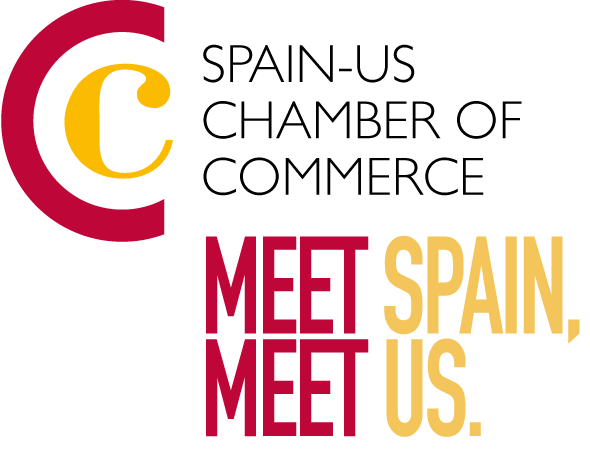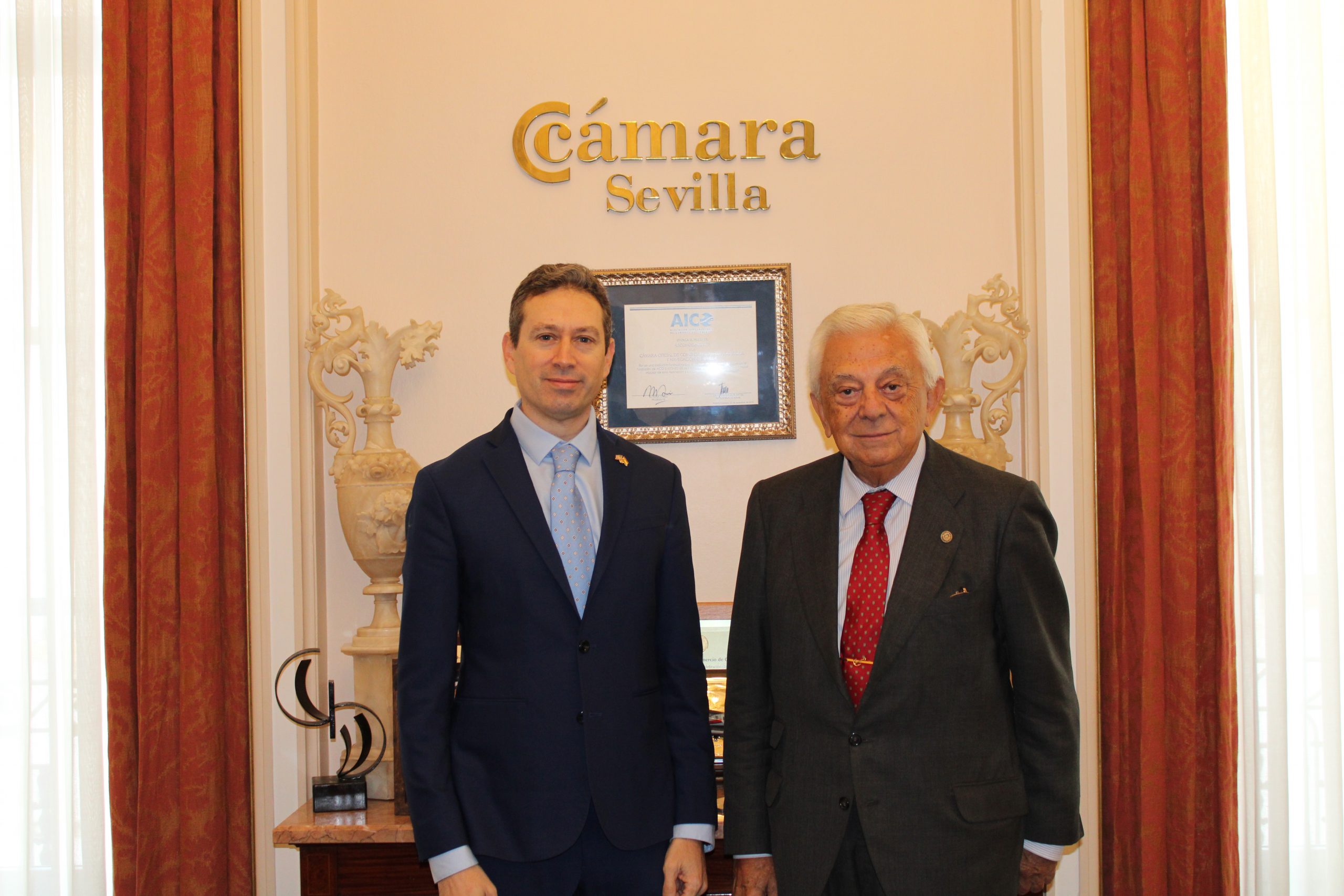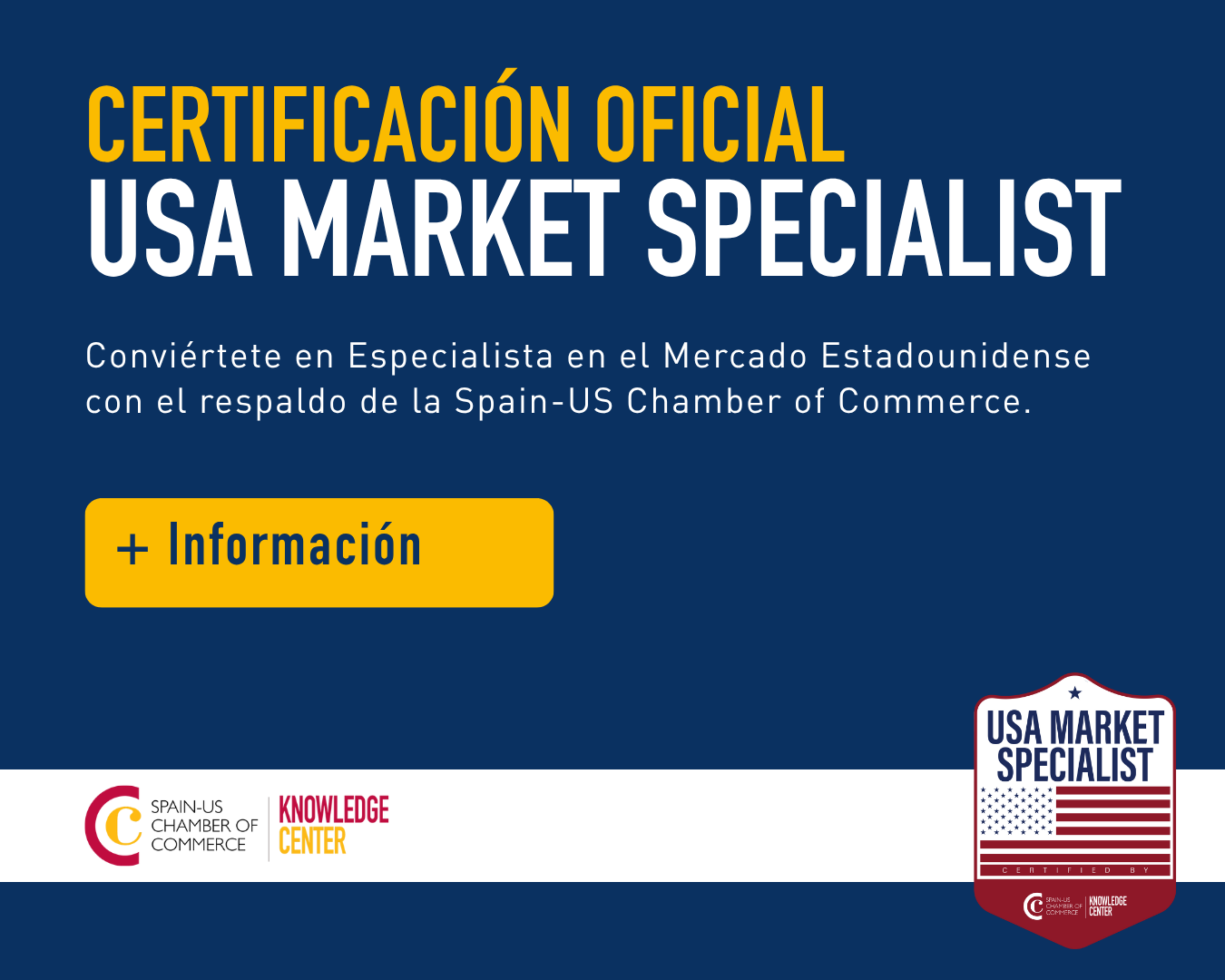
- By: Spain-US Chamber of Commerce, Inc.
- Author: Clara Pavón Estradé
- International Business Development
Each month, the Spain-US Chamber of Commerce organizes multiple events covering topics such as sports, renewable energy, infrastructure, food and beverage, technology, logistics and much more. But last month was special: we had the unique opportunity to co-host an event with the International University of La Rioja (UNIR) and MIU-City University Miami on cybersecurity and AI, a topic that is on everyone’s mind. This event brought together two prominent figures: Chief Digital Officer (CDO) of Telefonica and cybersecurity expert Chema Alonso, and former football legend and startup founder Iker Casillas.
The growing interest in AI is evident as more than 300 million searches related to AI are conducted annually, showing a substantial increase in curiosity and demand for information about this rapidly evolving field. I’d like to share some of the key insights we gained from that day.
The evolution of AI in Cybersecurity
Chema Alonso kicked off the event with an engaging presentation on the impact of AI, particularly generative AI, on cybersecurity. Drawing on his extensive experience from renowned conferences like DefCON and BlackHat, Alonso highlighted how advancements in AI are transforming various fields such as machine learning, facial recognition, computer vision, and text generation.
Alonso also delved into the concept of digital or synthetic humans, likening it to the scenario depicted in the movie Blade Runner. He emphasized that while AI has achieved human parity in some areas, it still struggles with mastering the most crucial cognitive skill: creativity. Companies like Meta Human and BeHuman are at the forefront of this trend, pushing the boundaries of what AI can achieve.
The Intersection of Sportech and Innovation
Iker Casillas joined Alonso for a roundtable discussion to explore the partnership between Telefónica and his company SportBoots, an accelerator and co-investment platform specializing in sports, innovation, and technology. Casillas shared his journey into technological entrepreneurship, which began after he experienced a heart attack and collaborated with the health-focused startup Idoven. “The idea to create an accelerator for the sports world emerged from this collaboration, and in just three years, we are working with 11 tech startups and have co-invested more than 2 million euros,” Casillas stated.
Casillas also reminisced about his long-standing friendship with Alonso and discussed the ‘American Dream’ of expanding SportBoots into the US market with a new office in Los Angeles. He emphasized the importance of cybersecurity and AI in daily life and offered advice to new entrepreneurs: “Trust in your ideas—not your dreams—fight for them, to make them a reality.”
Tackling email vulnerability
In another session, Alonso explored the role of email in both professional and personal contexts since the advent of the internet and its current vulnerabilities to spam, phishing, and spoofing attacks. He introduced MyPublicInbox, a platform designed to shield users from unwanted emails by implementing a barrier system that ensures agile and direct communication while protecting users’ time. “Our idea is a mailbox intended for close circle interactions in public environments, accessible via the internet and under the principle of reasonable use of emails,” Alonso explained.
Academic Perspectives on Cybersecurity and AI
For students and young professionals eager to explore careers in cybersecurity and AI, and there were many—more than 300 participants joined online—Daniel Burgos from UNIR provided valuable academic insights. He emphasized the importance of equipping future professionals with not only technical skills but also interdisciplinary abilities such as decision-making, critical thinking, and teamwork. “The integration of these skills ensures that individuals can effectively address the current and future challenges of cybersecurity and AI,” Burgos noted.
Building on Alonso’s expertise, Burgos elaborated on the concept of ethical hacking—”advancing technology’s boundaries, particularly in security, to benefit corporate security.” He highlighted the necessity of comprehensive educational programs, ongoing professional development, and the inclusion of industry experts in academic settings through lectures and masterclasses to motivate students.
Lastly, he emphasized that cybersecurity should be integral to future professions, covering areas such as data protection, digital identity, access to information, and various other facets of professional and social life.
- The Official Chamber of Commerce of Spain in the United States is a recognized nonprofit organization aimed at enhancing business and commercial ties between Spain and the United States. Founded in 1980 and located in Miami, this Chamber is of considerable importance due to its strategic location, multicultural component, and excellent communication network. Miami is the perfect city to target both the American and Latin American markets.
- www.spainuschamber.com




